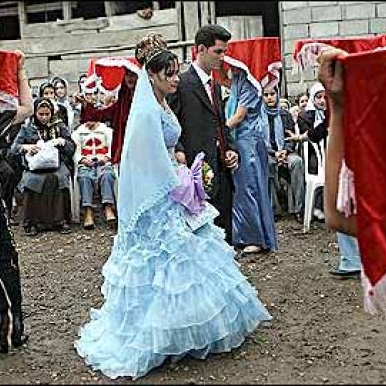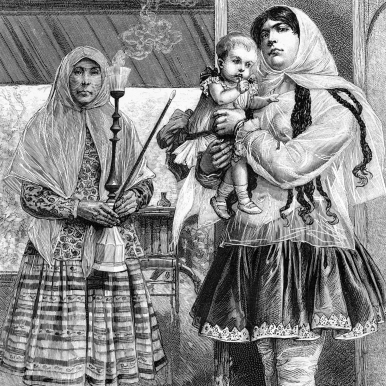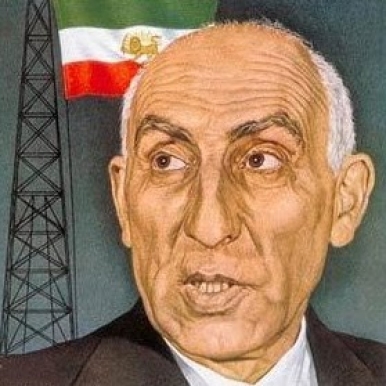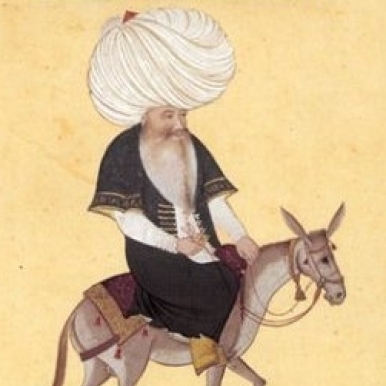
My recent work has focused on contemporary courtship practices in Middle East and North Africa (MENA) and evolving attitudes about sex, marriage, religion, and democracy among youth.
Survey on Love, Marriage and Religion
I co-lead with Roger Friedland (UCSB-NYUAD) and Maria Charles (UCSB) a survey on Courtship, Marriage, and Religion in MENA. Employing popular social networking sites, such as FaceBook, we have conducted survey research on the intimate lives of young people in a number of Muslim-Majority countries such as Algeria, Egypt, Iran, Pakistan, Palestine, Tunisia, and Turkey. More
"Digital Romance: The Sources of Facebook Love in the Muslim World.” Article co-authored with Ramina Sotoudeh and Roger Friedland. Media, Culture, and Society. Sage Press. February 2017. Link
"Love in the Middle East: The Contradictions of Romance in the Facebook World.” Article co-authored by Roger Friedland, Janet Afary, P. Gardinali, and C. Naslund Critical Research on Religion. Sage Press. Fall 2016. Link
Related Conferences and Workshops
Conference on 'The Changing Nature of Family and Marriage in Contemporary Iran.' November 3, 2017. More

In the last century gender relations and sexual practices have evolved dramatically in the Middle East and North Africa (MENA), though marriage and family have remained fundamental institutions. This section looks at how shifting norms of gender/sexuality have contributed to political changes in both subtle and overt ways. Articles and books look at the legal and social status of women, the changing nature of the matrimonial bond from arranged marriages to modern cohabitation called White Marriages, non-monogamous heterosexual relations such as temporary marriage, polygamy, and slave concubines; and the gradual evolution of same-sex relations from status-defined homosexuality to a modern gay life style.
Book Series with I.B. Tauris
Series Editors: Janet Afary and Claudia Yaghoobi
Sex, Marriage, and Family in the Middle East
Individual volumes will consider the ancient, early Islamic, medieval, early modern and contemporary periods and how traditions and practices related to marriage and concubinage have evolved and interacted across time and countries. Contact afary@religion.ucsb.edu or cmassihi@gmail.com to submit a proposal.
Iran: A Modern History, by Abbas Amanat (New Haven, CT: Yale University Press, 2017). Book review by Janet Afary in Iranian Studies, September 2019. Link
Sexual Politics in Modern Iran
Drawing on my experience growing up in Iran and engaging Iranian women of different ages and social strata, this project charts the history of Iran’s sexual revolution from the 19th century to today. The research was published by Cambridge University Press in 2009. More
Foucault and the Iranian Revolution
This study illuminates Foucault’s support of the Islamist movement and how his experiences in Iran contributed to a turning point in his thought, influencing his ideas on the Enlightenment, homosexuality, and his search for political spirituality. Co-authored with Kevin B. Anderson and published by University Of Chicago Press, 2005. More
Related Conferences & Workshops
'Marriage, Family, Religion and Culture in Pre-Islamic and Early Islamic Iran and the Middle East.' Conference at NYU Abu Dhabi, January 9-10, 2017. More
Workshop on 'Marriage, Family, Religion, and Culture in the Multiethnic Empires of Ancient Iran' (with John Lee, Dept of History). Orfalea Center for Global & International Studies, UCSB. February 2016.

Iran has been embroiled in a struggle for popular sovereignty, equality, religious reform, and civil rights in the last century. As the books and articles in this section demonstrate the tensions and conflicts among three competing forms of political legitimacy--monarchical, republican, and theocratic—have shaped the political trajectory of Iran.
"Iran’s 1907 constitution and its sources: a critical comparison." Article co-authored with Eric Massie. British Journal of Middle Eastern Studies, Vol 46, no. 3, 2019. Link
“Ali Akbar Dehkhoda: Literary Accomplishments and Religious Reforms of Sur-e Esrafil." Article co-authored with John Perry in Iran Nameh 2: 1 (Spring 2016): 6-27.
“Foundation for Religious Reform in the First Pahlavi Era.” Article published in Iran Nameh 3: 30 (Fall 2015): 64-87.
“The Place of Shi’i Clerics in the First Iranian Constitution.” Article published in Critical Research on Religion 1 (Fall 2013): 327-346.
The Iranian Constitutional Revolution, 1906-1911
During formation of Iran’s first constitution, a variety of forces played key roles in overthrowing a repressive regime. The research sheds new light on the role of ordinary citizens and peasantry, the status of Iranian women, and the multifaceted structure of Iranian society. More
Related Conference & Workshops
Workshop on 'Turkey, Iran, Arabia, Central Asia, and the Nation-State Identity.' Annual conference of the Orfalea Center for Global & International Studies at UCSB, Feb 27, 2016.
'Constitutional Politics in Modern Iran: A Re-Examination and Implications for the Future.' Conference held at UCSB on March 1-3, 2012.

Reinterpreting myths and folklores has been an essential literary strategy throughout Western cultural history. From Homer and Euripides to Maxine Hong Kingston and Toni Morrison, poets and writers have reinterpreted old tales to meet the needs of contemporary social criticism. This section will look at similar historical exploration of revisionist mythologies in Iran and the predominantly Shi’i Muslim Caucasus region. How Iranian and Azeri writers, poets, and artists constructed a tolerant anti-colonial, social democratic, and reformist religious discourse about regional politics and culture that impacted the thinking of generations of Muslims.
"Mollā Nasreddin and the creative Cauldron of Transcaucasia." Article co-authored with Kamran Afary. British Journal of Middle Eastern Studies, September 2019. Link
"The Rhetoric and Performance of the Trickster Nasreddin," an article co-authored with Kamran Afary, was published in Iran Namag 2: 1 in Spring 2017.
Charand-o Parand (Stuff and Nonsense)
A classic of Modern Persian literature, originally a series of newspaper columns written by scholar and satirist Ali-Akbar Dehkhoda (1906–11), the pieces poke fun at mullahs, the shah, and the old religious and political order during the Constitutional Revolution in Iran (1906–11). Translated by myself and John R. Perry, and published by Yale University Press in 2016. More




